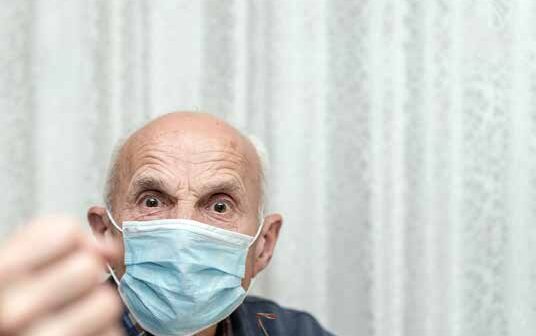
“Titration with a lower starting dose is recommended in elderly patients, due to possible decreases in pharmacokinetic clearance, and due to the risk of concomitant diseases and drug interactions. Exposure to some Aps (antipsychotic agents) has been associated with QTc prolongation and arrhythmias, and a small but significant increase in the risk of stroke and mortality with Aps has been seen, particularly in older people with dementia-related psychosis.”2
Explore This Issue
ACEP Now: Vol 41 – No 06 – June 2022These statements confirm recommendations from the first article.
A third article by Aftab et al., in Psychiatry Clinics in North America focuses on the agitated elderly patient.3 Key points from this article include:
- As a result of multiple physiological and pharmacokinetic changes, the elderly are more vulnerable to the side effects of medications and require lower doses of medications and slower rates of titration.
- The geriatric population is a high-risk group for suicide, with more serious intent, fewer warning signs and more lethality. Suicide risk assessment should be part of a standard emergency psychiatric assessment.
- Prompt diagnosis and treatment of delirium in emergency settings is essential given the association with worse outcomes such as prolonged hospital stay, risk of cognitive decline, and increased mortality.
- Behavioral interventions for agitation in dementia are the first-line measure before pharmacologic interventions. Pharmacologic options with demonstrable efficacy are mostly limited to antipsychotics, the use of which is problematic, as all antipsychotics increase the risk of mortality in dementia.
As a result of this brief literature search, it is evident that the recent literature supports the use of pharmacologic agents for the treatment of agitated elderly patients. Appropriate agents may include risperidone, olanzapine and aripiprazole. Low doses should be initiated. Benzodiazepines should be avoided. Suicidal risk should be assessed. Etiologies of altered mental status should be investigated, including trauma, pain, infection, or medication effect.
Dr. Marco is professor of emergency medicine at Wright State University in Ohio and associate editor of ACEP Now.
References
- Gottlieb M, Long B, Koyfman A. Approach to the Agitated Emergency Department Patient. J Emerg Med. 2018 Apr;54(4):447-457. doi: 10.1016/j.jemermed.2017.12.049. Epub 2018 Feb 1. PMID: 29395692.
- Mouaffak F, Ferreri F, Bourgin-Duchesnay J, Baloche E, Blin O, Vandel P, Garay RP, Vidailhet P, Corruble E, Llorca PM. Dosing antipsychotics in special populations of patients with schizophrenia: severe psychotic agitation, first psychotic episode and elderly patients. Expert Opin Pharmacother. 2021 Dec;22(18):2507-2519. doi: 10.1080/14656566.2021.1958781. Epub 2021 Aug 17. PMID: 34338130.
- Aftab A, Shah AA. Behavioral Emergencies: Special Considerations in the Geriatric Psychiatric Patient. Psychiatr Clin North Am. 2017 Sep;40(3):449-462. doi: 10.1016/j.psc.2017.05.010. PMID: 28800801.
Pages: 1 2 3 | Single Page




No Responses to “Tips for Managing Acute Agitation in the Elderly”